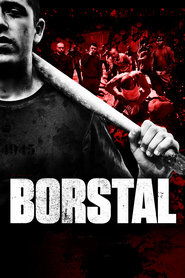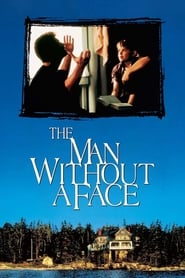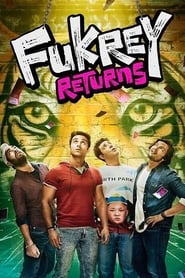
The chance to shine in a singing competition offers much-needed hope for a Southern middle-schooler who’s drowning in worries, from bullies in the halls to turmoil at home — and the news that his reservist father has been called back to Afghanistan.
You May Also Like

Nate Foster, a young, idealistic FBI agent, goes undercover to take down a radical white supremacy terrorist group. The bright up-and-coming analyst must confront the challenge of sticking to a new identity while maintaining his real principles as he navigates the dangerous underworld of white supremacy. Inspired by real events.

Flight 23 has crashed in the Bermuda Triangle while taking VIPs and valuable art to Philip Stevens new museum. But when hijackers take off the plane and knock everyone out with sleeping gas the plane crashes in the sea. The passengers survive but a small hole at the front is flooding the plane and 2 daring rescues must be put into action because everyone is trapped 200 feet underwater.

DIE EXPATS explores love, loss and lust, identity and modern relationships. It is a story of four people in search of reclaiming a sense of self while navigating the knotted, overlapping space they occupy. When said space begins closing in around them, they realize the only way to get out, and not be squashed by it, is to examine their own intentions, and be willing to let go of the past, and each other. The saying goes, people come to Berlin to find what they want; but for this group, Berlin is the bearer of disillusionment. Perhaps in finding out what they don’t want, Vivian, Nate, Sienna and Andreas finally uncover what it is they each truly need.


Juan has become the laughingstock of the small fishing village, due to his wife being unfaithful and getting pregnant by another man. He has left fishing and now obsessively cares for an ostentatious mansion of a wealthy family from the capital. One day, the young son of the owner shows up at the house, without his father’s permission and loaded with alcohol, with a foreign friend and a village girl they just met. During the course of the weekend, Juan will be forced to make decisions that will affect the rest of his life.

The story of a relationship between a teacher and his troubled pupil. Justin McLeod is a former teacher who lives as a recluse on the edge of town. His face is disfigured from an automobile accident and fire ten years before in which a boy was incinerated and for which he was convicted of involuntary manslaughter. He is also suspected of being a pedophile. He is befriended by Chuck, causing the town’s suspicion and hostility to be ignited. McLeod inculcates in his protege a love of justice and freedom from prejudice which sustains him beyond the end of the film.


Set in the port town of Dover in the South-East of England, Mary Hussain suddenly finds herself a widow following the unexpected death of her husband. A day after the burial, she discovers he has a secret just twenty-one miles across the English Channel in Calais.

A year after the first movie, the four friends are enjoying their lives to the fullest, get in trouble once again with Bholi, who is released from prison earlier than expected and is broke.

When she fails to meet an item on his list of requirements for a bride, Julia Thistlewaite is jilted by London’s most eligible bachelor, Mr. Malcolm. Feeling humiliated and determined to exact revenge, she convinces her friend Selina Dalton to play the role of his ideal match. Soon, Mr. Malcolm wonders whether he’s found the perfect woman…or the perfect hoax.

Growing up in Las Vegas, Danny and Melissa meet at age eight and are destined to become life long friends. During their teen years they cling to each other for love and security but as they grow older their lives take different paths. Danny fills the void in his heart with his passion and love for America’s favorite pastime. While Melissa, filled with the insecurities of her youth, struggles to find the strength to pursue her childhood dreams. Although apart, their lives are forever connected. Like a glorious seven game world series, “The Road Home” is a story of imperishable hope, courage, faith, love and coming home.